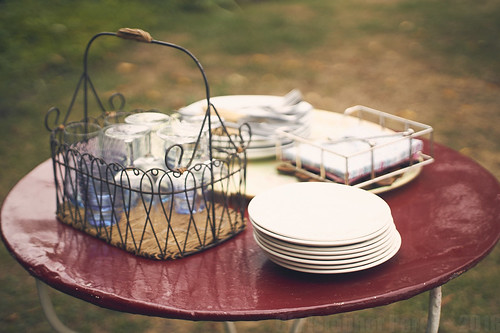After collecting our rental car we headed over to an organic food market to do a bit of shopping before we met the apartment owner in who's place we would be staying.
As I parked the car along a granite stone edged curb an elderly gent commented on my parking job and remarked on the distance to the front door of the market. He was a nice guy and we had a pleasant, short chat.
Soon Jude and I were gathering our provisions when I happened upon the elderly gent for a second time. One thing led to another and before we knew it we were talking about family origins and political histories.
He asked, of course, about my accent, so I told him where we were originally from. I told him I grew up in the Los Angeles area but couldn't speak Spanish. He was surprised so I explained to him how Americans tend to view citizens with a Hispanic surname. To further illustrate my story I showed him my Carte de Sejour and my name.
The gentleman pulled out his Carte d’Identité to show me his name. He asked if this meant anything to me. My eyes grew big with recognition and I asked him if, perhaps, he was related to someone of the same name. He smiled and said "no", but that his family up to the time of the first world war had lived in Normandy.
His grandfather had moved the family to northern Spain at the outbreak of the Spanish Civil War. They were involved with the Republican efforts against Franco, the ultra-conservative nationalist Catholic fascists, and Germany.
While I'm not sure precisely what collective effort the family was involved in, but when the Republican struggle against Franco failed the entire family returned to France and went into hiding.
Out of concern for Spanish agents working on behalf of the regime they remained in hiding for the entire time Franco was alive. It is only rather recently, in fact, that anyone feels safe enough to talk about what happened. The man's son came to encourage his father to follow him to la caisse to pay for their own items so they could go make dinner. The son confirmed his father's story.
I can't imagine the idealism and optimism for the future that encouraged a grandfather to move his family to a different country, to start a new life, and to defend those ideals. I can't imagine the fear and concern he must have had once he realized the effort had failed and that he'd placed his family in danger.
How can an American experience compare with any of this?



